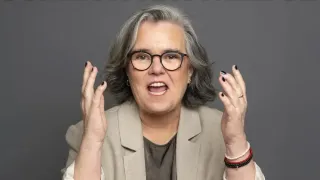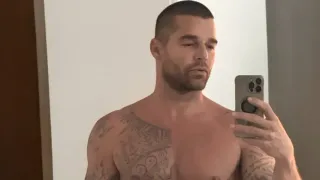June 29, 2017
Our Future: Has 'Twin Peaks' Shifted With the Times?
Kyle Mangione-Smith READ TIME: 4 MIN.
I've always been irked by the notion that we're in the supposed golden age of television. Of course, the quality of the average TV show has gone up drastically since the turn of the century, and there's a good handful of modern shows that I absolutely adore; regardless, as a filmmaker myself, it's always depressed me that the general consensus is that what we currently have is the best we can do. This especially holds true as the growing consensus seems to be that television as an art form is rapidly outpacing film.
Shows like "Breaking Bad" and "The Sopranos" were certainly revolutionary, and yet it seems that rather than expanding upon the model for television they created, most networks would rather follow in their steps now a decade on. That is, creating very well written narrative dramas that stray towards being dark, gritty, and intense. Is "House of Cards" really fundamentally very different from either of those shows? Or "Narcos?" "Mr. Robot?" That's not to say that those and other similar shows aren't good in their own right, but it's always struck me that for the "golden age of television" things are a lot more stagnant than most would like to admit.
Kyle MacLachlan in "Twin Peaks: The Return"
Disregard all the politics associated with television for a moment and consider it as a cinematic art form. The idea of a long running film, split up into episodic parts that can theoretically keep running forever poses countless creative opportunities that aren't possible when creating a film. I'm not just talking in terms of narrative and character development, but down to the fundamentals of filmmaking. Pacing, visual aesthetics (and how they develop over time), use of sound and music, etc. Comparatively to film, where artists have been pushing the boundaries of the format nearly since its inception, television has a lot of uncharted territory that has yet to be broken.
I understand why this is the case, too. More so than film, television really is a spectacle. To be successful television needs to be seen, it needs praise, and it needs to pull a profit. A film can be created independently and released without making much money or being publicly accepted and not suffer much for it. The filmmaker in question might, as it might make it harder for them to create future work, but that film still stands independently as its own finished body of work. However, in most cases, television shows need to be renewed as to continue on the story. "Breaking Bad" never would have had the impact it did if it had been cut off at any point in its five season run. And so the bounds which television can operate within have been set much more conservatively than they theoretically could be.
David Lynch in "Twin Peaks: The Return"
Which is all to say that the new season of "Twin Peaks" is somewhat of a blessing to me. Part Eight, which aired last Sunday, is likely the most groundbreaking and daring piece of television ever aired, regardless of ones' opinion of it. The first five or so minutes of the episode hold continuity with the rest of the story line. This is followed by a full-length performance by Nine Inch Nails in a bar, and from that point forward it descends into some of the most abrasively experimental work I've seen in any cinematic format, television or otherwise. There's not a word of dialogue for about 30 minutes, and we finally do see people speak, it's so stilted and disorienting it seems closer to a grouping of aliens trying to replicate human communication. Yet despite all this, it still pushes the story forward and expands upon the mythology behind "Twin Peaks" in the most abstracted and disorienting way possible.
While Part Eight will certainly be the most divisive and alienating episode so far, the rest of the season hasn't been much more welcoming. It moves at a glacial pace, the central character is closer to an amoeba floating through space than an actual functioning human, and most of the beloved central characters from the shows original run have had about five minutes total of screen time so far. As it's becoming rapidly clear David Lynch has no one left to impress, and that inhibition coupled with his success has placed him in an unprecedented position. He's an artist at the peak of his craft with a steadfast vision, with nearly unlimited resources to make it happen and a major network to broadcast it. It's unlikely this is something we'll ever see again.
Laura Dern in "Twin Peaks: The Return"
Yet despite this, I can't say that "Twin Peaks: The Return" is really fundamentally different from the original show. In terms of content, sure, but its ethos and what it's attempting to do with television as a format is very much the same. Parts of the original two seasons of "Twin Peaks" might seem dated now, but within the context of television at the time, the creative choices it took were unprecedented and daring. It presented a show in many ways not unlike most popular television at the time in its kitschy melodrama, and then it distorted that format just enough for it to not sit right.
But this isn't the early 90s anymore. "Cheers" and "Magnum PI" aren't the expectations we place on new television, but rather "Breaking Bad" and "The Sopranos." Television is expected to take itself seriously, it's expected to be challenging. So how do you renew a show that thrives on its audacity and ingenuity when circumstances have shifted so greatly? You shift with them. "Twin Peaks: The Return" is dark, gritty, and intense, but it accomplishes that by venturing into territory most other golden age shows wouldn't touch with a ten-foot pole. For that alone, it deserves respect.
Naomi Watts and Kyle MacLachlan in "Twin Peaks: The Return"
Twin Peaks: The Return" airs on Showtime, Sundays at 9 p.m.






